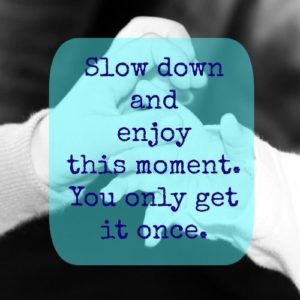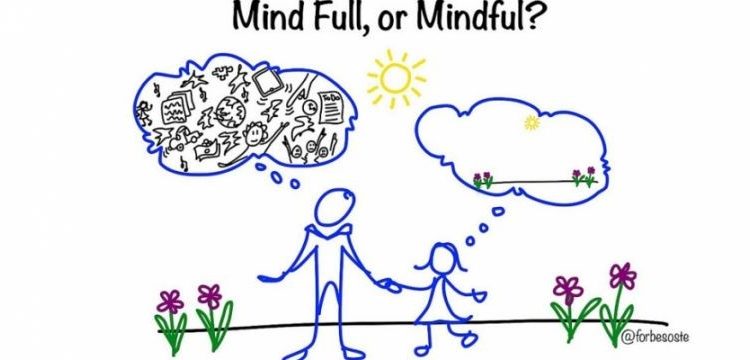What is “mindful parenting”? According to Jon & Myla Kabat-Zinn (2014), mindful parenting is a lifelong parenting practice where “you become less attached to outcomes and more mindful of what’s unfolding in your life and your children’s lives. Mindful parenting is about moment-to-moment, open-hearted, and nonjudgmental attention. It’s about seeing our children as they are, not as we want them to be.”
How does one go about being a mindful parent? Here are 7 tips, each summarized in just two words.
Be Present
The best gift you can give your children is to “be present.” This involves making an intentional decision to interact with your children with awareness in the moment, rather than being distracted and only giving them your partial attention. Life is full of competing demands and stimuli, such as jobs, house chores, commutes, use of electronic devices and much more. Choose times in which you are able to put the cell phone down and instead tune into the emotional needs of your children, be present.
Just Listen
When hearing the challenges or disappointments of others, especially your own children, parents are often quick to “offer advice.” This likely occurs because it is difficult to hear the worry and hurt of others, especially those you care about and love. What children are needing most is to be heard, so they can process their own emotions. If they want advice, they will ask or you can offer, after just listening.
Talk Less
If and when your children are wanting or needing feedback, try to be concise. If the dialogue with parents becomes too long, too frequent, or too intense, children will start to tune out or avoid talking to you, thus missing helpful information. Get to the point and talk less.
Stay Calm
Staying calm can often be very difficult to do, especially when your child is experiencing intense emotions or demonstrating less than desirable behaviors. The only thing more unhelpful than having one dysregulated person in an interaction is having two or three! You are your children’s first role model in how to identify and use emotions effectively, so learn to stay calm.
Set Boundaries
Identify and make clear basic expectations, both for your children and you as a parent. Defined simply, boundaries are “what’s ok and what’s not ok.” While it is important for emotions to be heard and validated, parents still need to be in charge of creating a secure and stable environment. Boundaries are important because they help children separate their own experiences from those of others, thus increasing their skills in self-control. In recent years, parenting has shifted from focusing on behavior to focusing on emotions. Being attuned to the emotional needs of your children is critical, just not at the expense of providing clear boundaries. Boundaries help children learn vital life skills, such as patience, problem solving, resourcefulness, responsibility, and self-discipline. Therefore, set boundaries.
Promote Autonomy
Given you are present in your child’s life and have set clear boundaries, allow them the autonomy or independence to make their own decisions based on their age and/or developmental level. Children need to venture out on their own to create their own positive experiences as well as mistakes. Mistakes will inevitably happen and are critical to learning. While you might desire to be invested in the choices and outcomes of your children, let this be their own. Support them by continuing to promote autonomy.
Love Unconditionally
Provide your child with love unconditionally. This means loving them as a person, regardless of their accomplishments, appearance, or other factors reinforced by our culture. Parenting will likely be your most challenging and yet also most rewarding activity of adulthood. As a parent, you have the unique opportunity to influence the development and life of another person. Unfortunately, as a parent, you will also likely not be perfect. You will have moments when you are distracted, not listening, are over-controlling, and anything but calm. Own your mistake(s) and give yourself love unconditionally.

Suggested Reading: Everyday Blessings: The Inner Work of Mindful Parenting, by Jon and Myra Kabat-Zinn (2014).
Dr. Marci Mueller Theisen, LP, CPRP, RYT is a clinical psychologist at Healthwise Behavioral Health & Wellness. She has provided psychological and emotional wellness services to children, adolescents, and adults for the past 30 years, utilizing a mindfulness-based approach.

